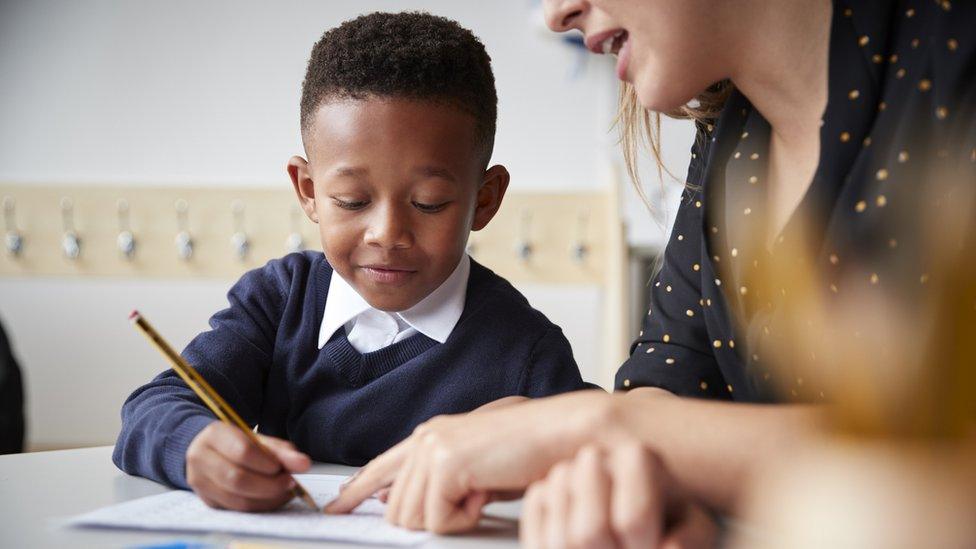'I adore my class - I feel awful I won't be there'
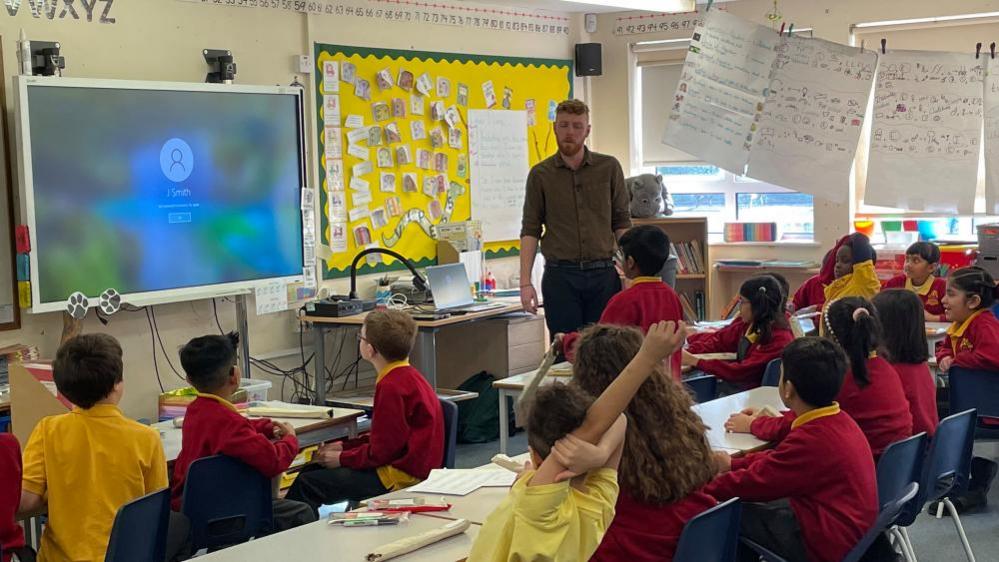
Chantry Primary Academy in Luton will stay open during the industrial action despite 15 teachers striking
- Published
Thousands of schools are facing disruption as teachers strike over pay.
It is the first in a series of strikes by the National Education Union (NEU) after talks between the government ended without resolution.
What do the strikes mean for a primary school in Luton and its teachers and children?
'Short-term disruption for long-term improvement'
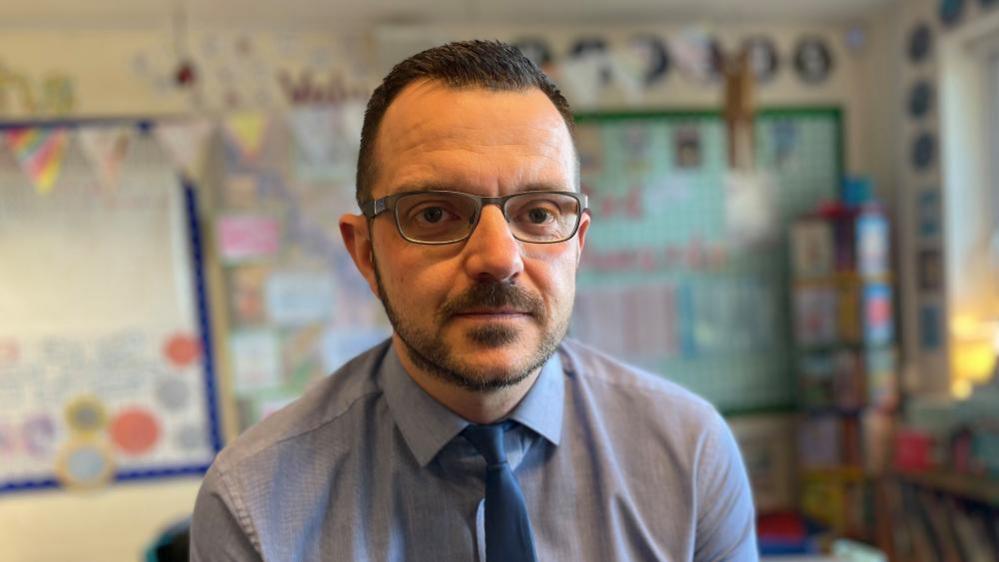
Year 5 teacher Jamie Kelly says teachers' pay has not risen in line with inflation for a number of years
Jamie Kelly has been a teacher for 16 years and will be striking at Chantry Primary Academy.
He hopes the action sends a "clear message to the government - enough is enough".
"Teachers are standing up for a fully funded pay rise," he says.
"I know it will cause disruption to children and their families, but what I would say to the parents and the children is that this short-term disruption is for long-term improvement in education.
"The majority of our parents are backing the teachers and the strikes."
Mr Kelly says he hopes the strike will be worth that disruption.
"My fingers are crossed that [the government] will listen to teachers," he says.
'You're not in it for the money'
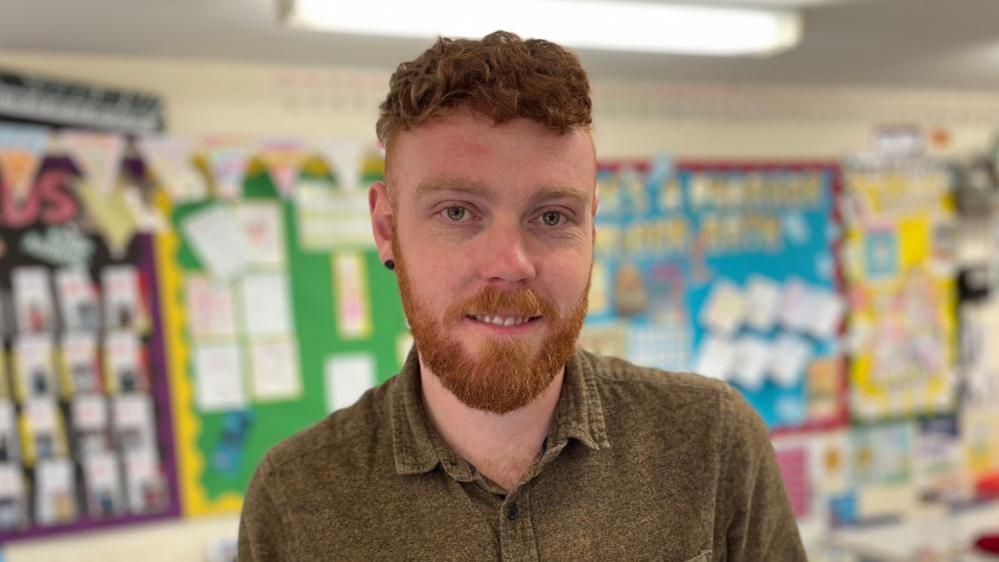
Jacob Smith says he believes teachers can ask for higher pay without striking
Year 3 teacher Jacob Smith will not be taking industrial action, because, he says, "I don't really agree with striking".
He says: "I think it puts out the general public rather than the people it's aimed to affect.
"I don't think it's the right way to put the message across.
"I do understand the reasoning, but I don't agree it's the right way to go about it."
Mr Smith, who has been teaching for two years, says the action will have an "effect on the parents' livelihood on that day".
"In this job you're not in it for the money; you're in it for the children and to help them," he says.
'I feel awful I won't be there for my class'
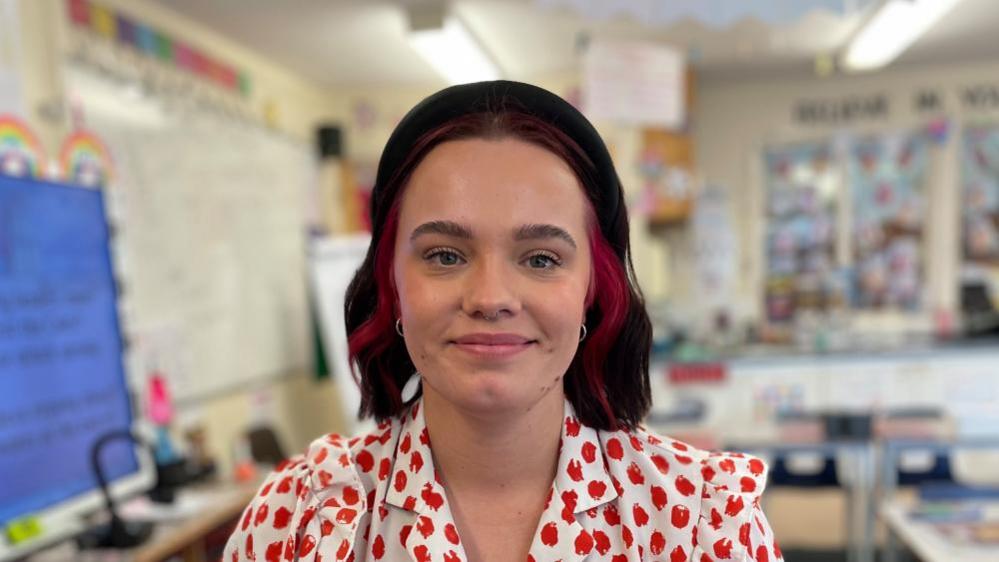
Teacher Ashleigh Mills says the strikes are not just about pay but also school funding
Ashleigh Mills also teaches Year 3 at Chantry and will be on strike.
She says: "I believe the education system is flawed and schools deserve more funding.
"It's not just about pay; it's about schools having enough funding to give children the best opportunity for learning."
The 27-year-old, who has been teaching for three years, says she has "just bought my first home, which is amazing".
She says: "With the cost of living at the moment it's do-able, but as the cost of living continues [to rise] or [if] I start a family, it won't be affordable for me.
"I didn't come into teaching for the money, but teachers should be paid fairly."
She says she has "anxiety" about striking.
"I absolutely adore my class; I have really great relationship with my children and I feel awful I won't be there for them.
"But I think it's really important we set an example for standing up for what we believe is right, showing the children they do have voice and they should use it.
"I think that's a really great lesson."
'Schools should be better funded'
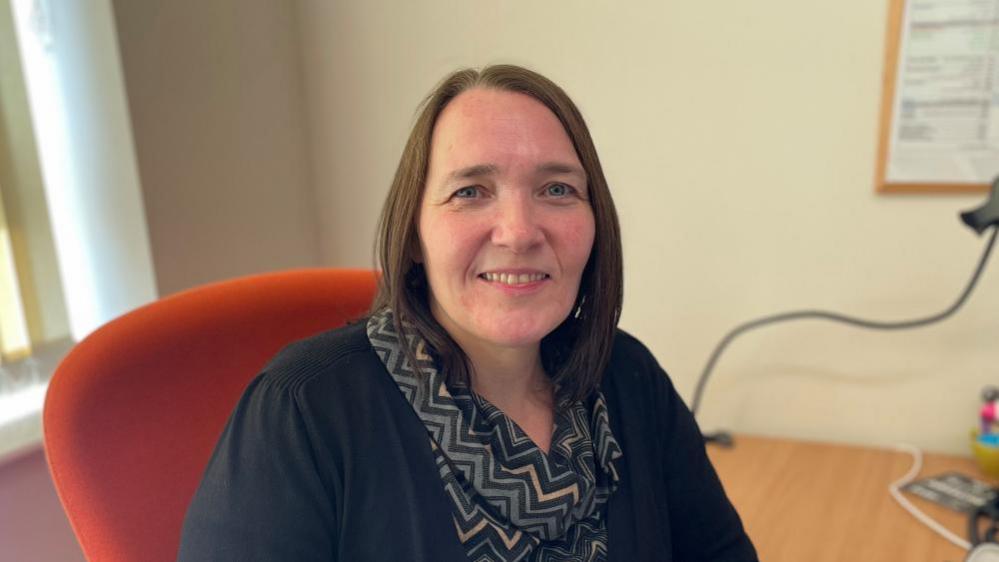
Head teacher Cori Bateman supports the strikes, but wants to keep her school open
Cori Bateman, executive head teacher at Chantry, says the school has 15 teachers striking.
She says: "I support the strike and the reasons for the strike [but] I didn't want the children to have any disruption to their learning."
The head teacher says the school has been able to cover all of the classes with support staff and teachers who are not striking.
"We've planned some special activities," she says, including whole-school projects covering writing, art and maths.
Ms Bateman says: "I don't feel it's the right time for children to have their education to be disrupted.
"In principle, schools should be better funded but the children have not got a vote in this so I believe the adults should be dealing with the adult matter of money and that children should not be impacted by that."
With further strikes planned in March, she says: "We'll take each strike day as it comes."
'Significant impact on children's education'
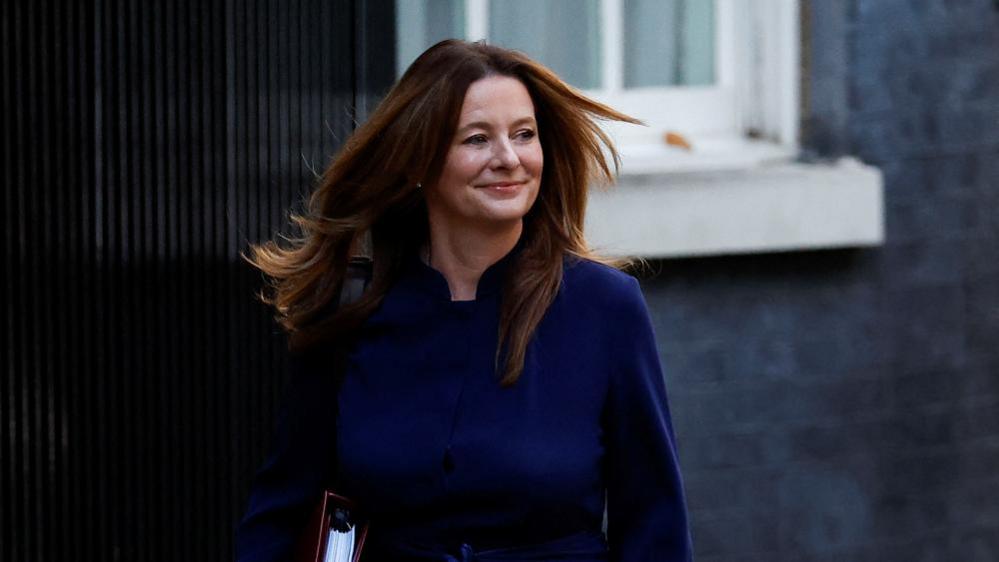
Gillian Keegan, the Education Secretary, says schools should try to remain open during strikes
Education Secretary Gillian Keegan has said she was disappointed the strike action would continue.
She said the industrial action would have "a significant impact on children's education, especially following the disruption of the past two years".
The Conservative government minister said the unions did not need to strike to meet her - and with talks continuing, it was clear the strikes were "not being used as a last resort".
She reiterated a call for teachers to inform school heads if they intended to strike, in order to avoid "unnecessary disruption", and to ensure safety for children.
Find BBC News: East of England on Facebook, external, Instagram, external and Twitter, external. If you have a story idea for us, get in touch via eastofenglandnews@bbc.co.uk, external
- Published30 January 2023

- Published15 April
